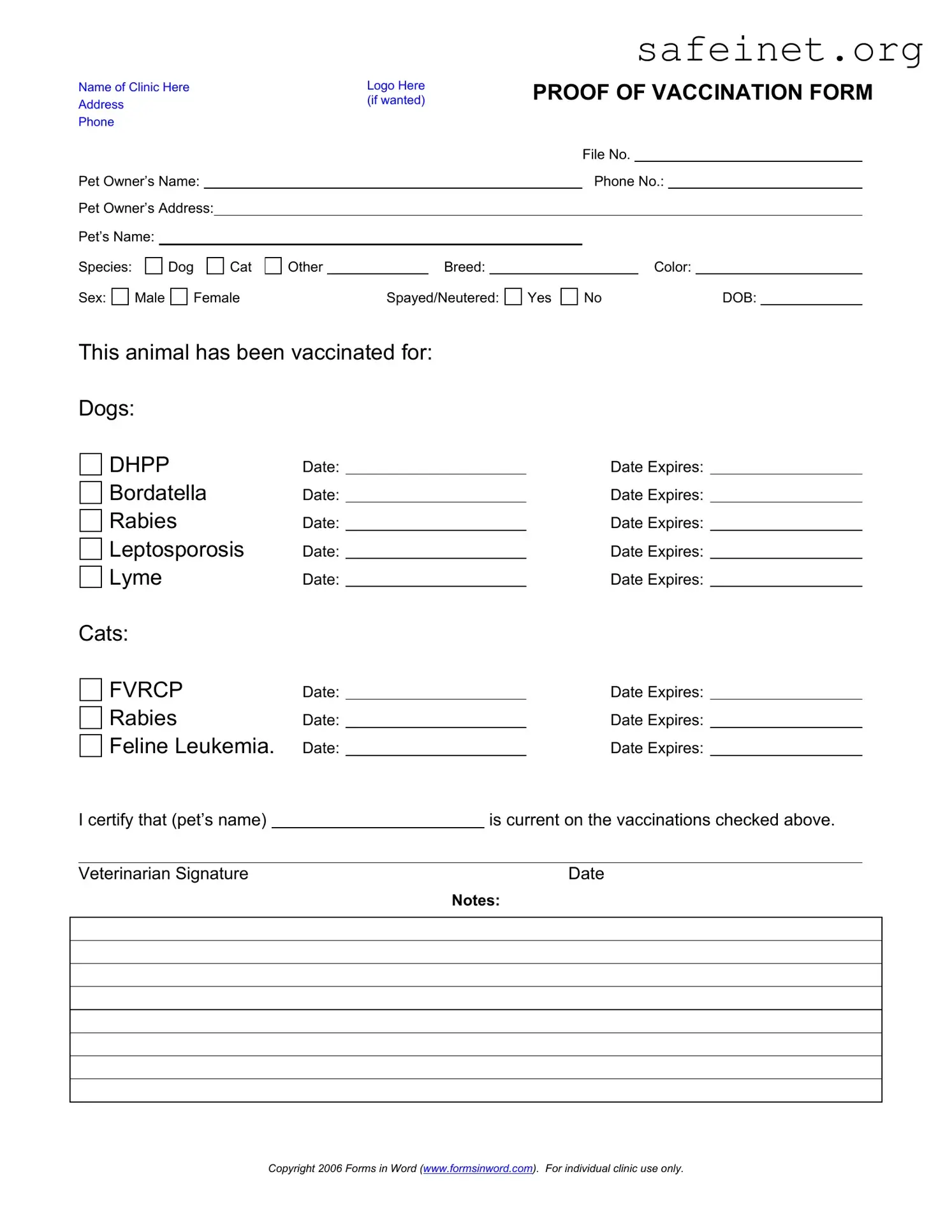What is the Proof Of Vaccination Dog form used for?
The Proof Of Vaccination Dog form serves as an official record confirming that your dog has received the necessary vaccinations. This document is crucial for various situations, including boarding facilities, dog parks, or when traveling. Many organizations and agencies require proof to ensure pets are protected against certain diseases, promoting a safe environment for all pets involved.
What information is included on the Proof Of Vaccination Dog form?
This form includes essential details about both the pet and the owner. It captures the pet owner's name and contact information, as well as the dog's name, breed, color, and sex. Additionally, the vaccinations administered are listed, along with the dates they were given and their expiration dates. Veterinarians sign the document, certifying that all information provided is accurate.
How can I obtain a Proof Of Vaccination Dog form?
You can obtain the Proof Of Vaccination Dog form directly from your veterinary clinic. Most clinics have standardized forms that will be filled out during your dog’s vaccination appointment. If you ever need an additional copy, simply ask your veterinarian or their staff, and they can provide one for you.
How often do my dog’s vaccinations need to be renewed?
The frequency of renewing vaccinations can depend on the type of vaccine given. Common vaccinations like DHPP and Rabies usually need to be renewed every one to three years. For specific timelines, consult your veterinarian, who can provide tailored recommendations based on your dog’s health, lifestyle, and local regulations.
Is there a cost associated with getting a Proof Of Vaccination Dog form?
Typically, there isn’t a separate charge for the Proof Of Vaccination Dog form itself. The cost is generally included in the price of the actual vaccinations administered. However, it’s always a good idea to inquire about potential fees when scheduling your dog’s vaccination appointment.
What should I do if I lose my Proof Of Vaccination Dog form?
If you lose the Proof Of Vaccination Dog form, don’t panic. Contact your veterinarian as soon as possible. They can often reissue a new form or provide you with a copy of your dog's vaccination records. Keeping a digital backup can also be handy for future reference.

